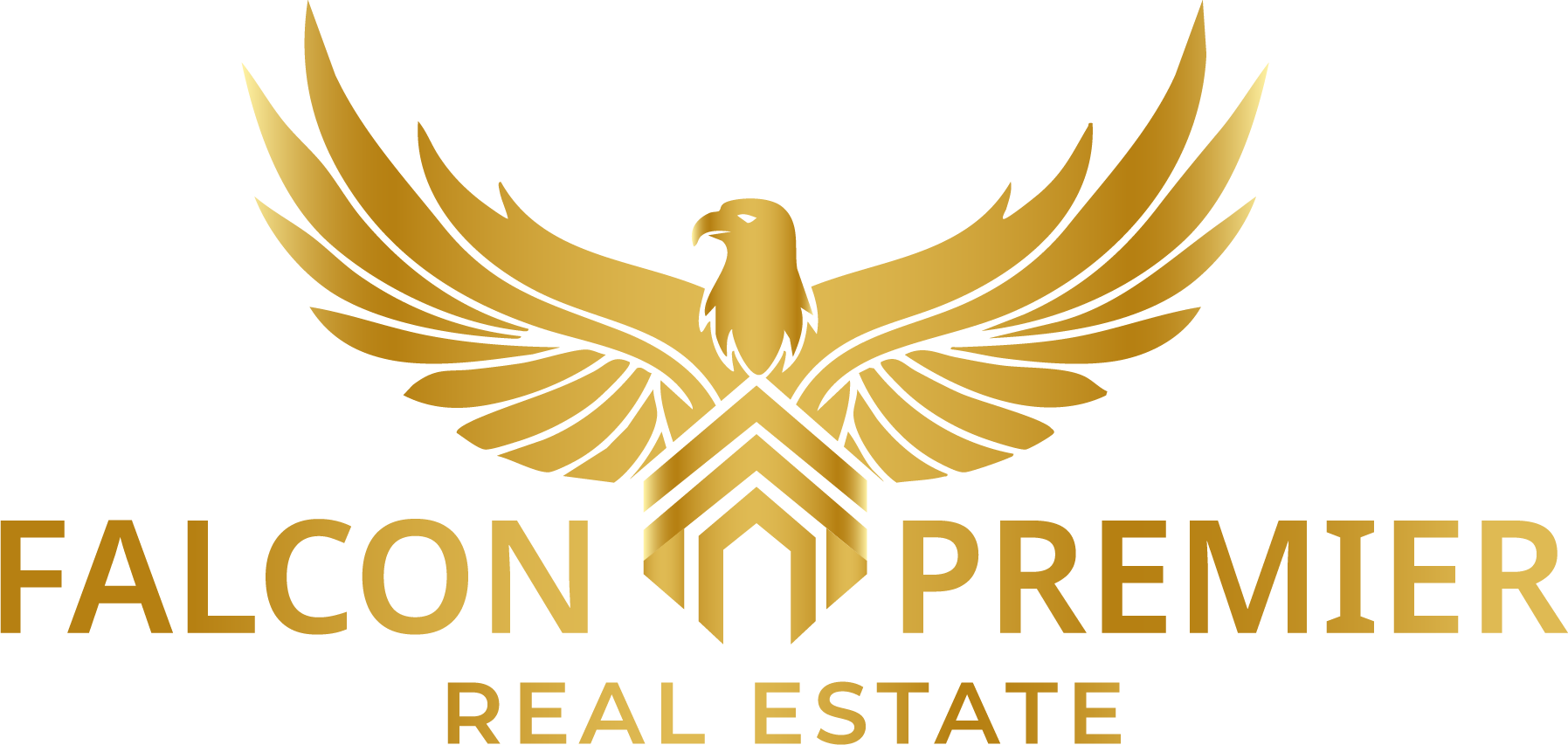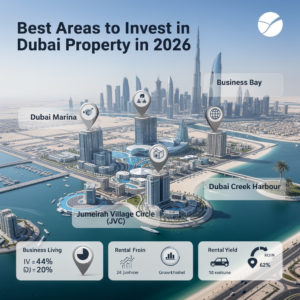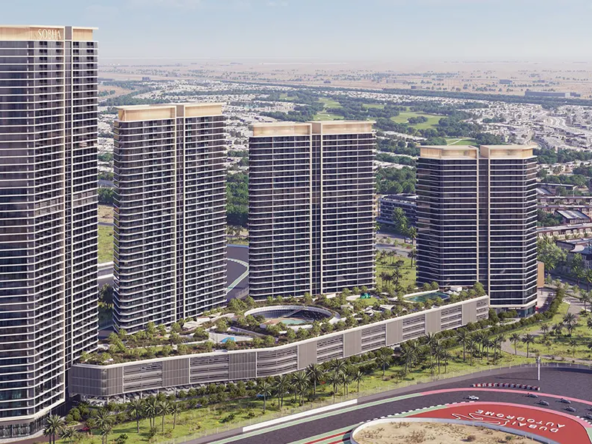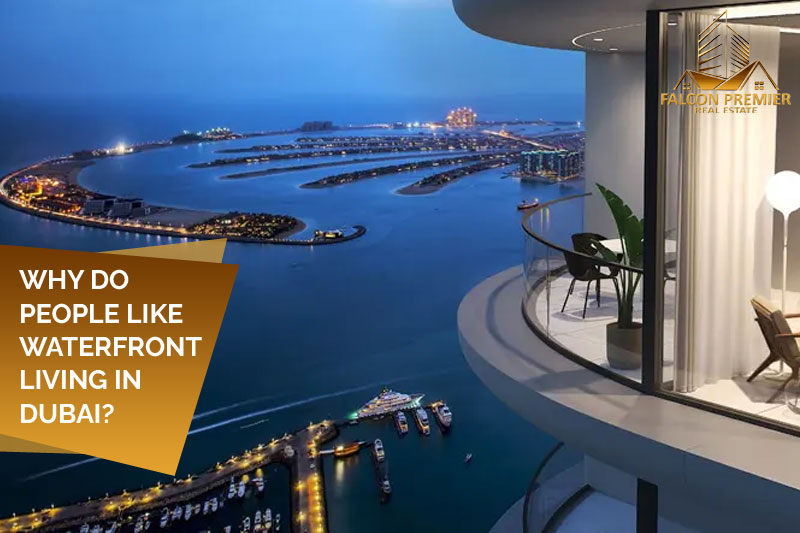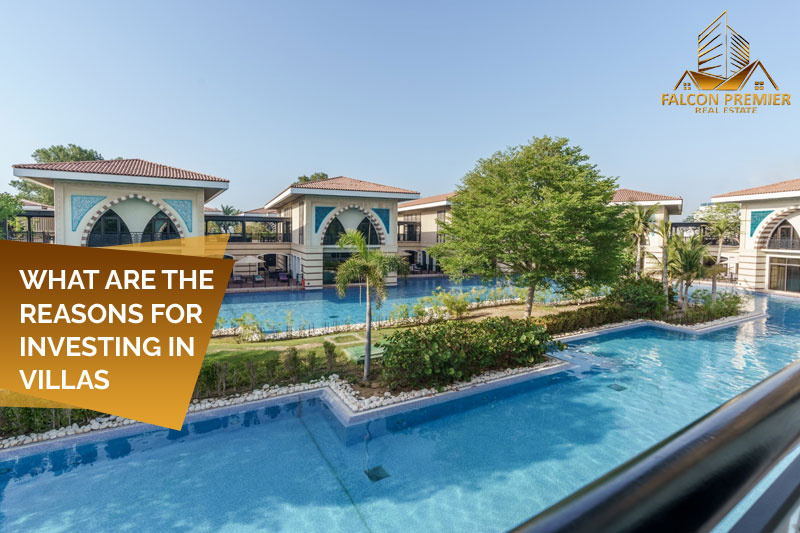Freehold vs Leasehold Properties in Dubai
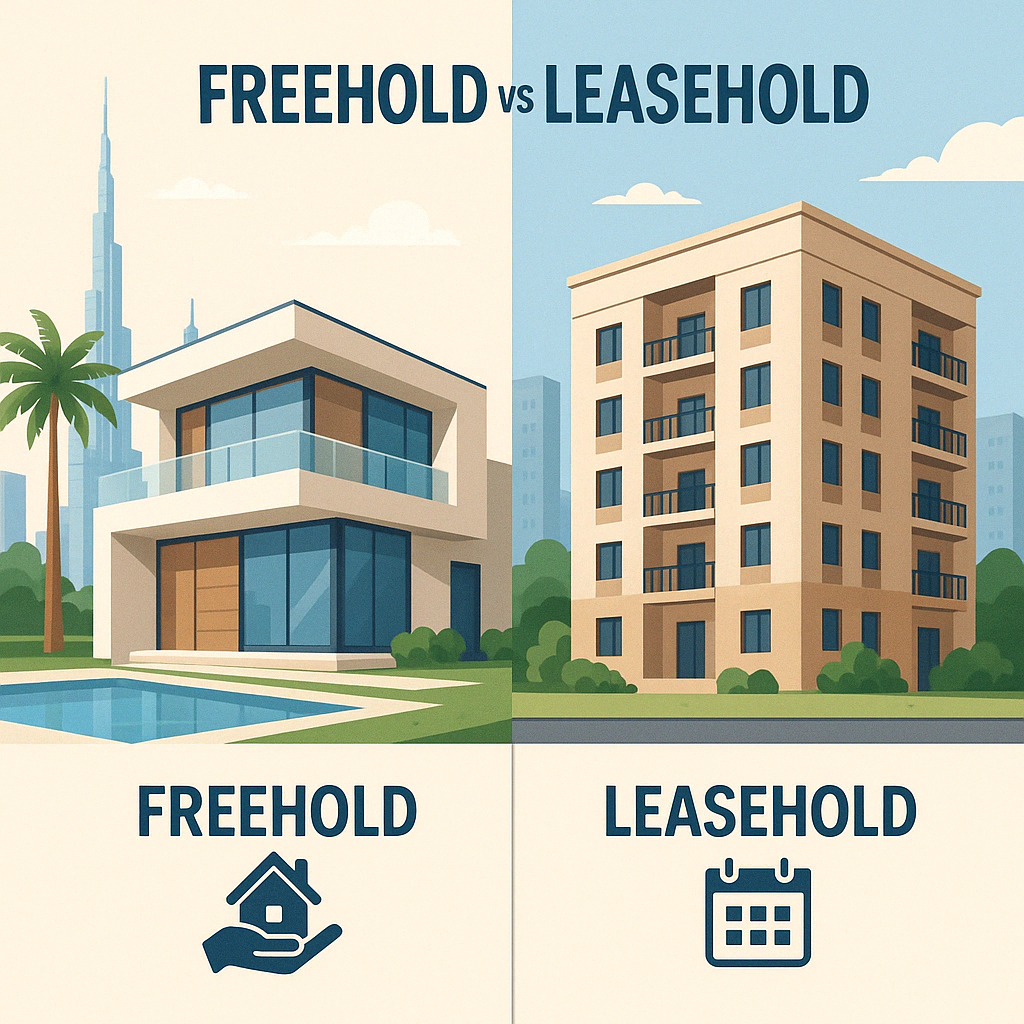
1. What Are Freehold Properties?
Freehold ownership grants indefinite rights to the property and land, with no lease expiration.
Key advantages:
Full control: Modify, sell, or lease without restrictions
Visa eligibility: 3-year renewable residency for properties over AED 1M
Prime areas: Business Bay, Downtown Dubai, and Dubai Silicon Oasis
2. What Are Leasehold Properties?
Leasehold properties offer temporary ownership (typically 30-99 years) with limitations:
Restricted modifications: Requires freeholder approval
Ground rent: Annual fees to the landowner
Budget-friendly: Lower upfront costs in Deira and Al Barsha
3. Key Differences Compared
| Feature | Freehold | Leasehold |
| Ownership | Permanent (land + property) | Up to 99 years |
| Costs | Higher upfront, no ground rent | Lower price + annual rent |
| Visa Benefits | Yes | Rarely |
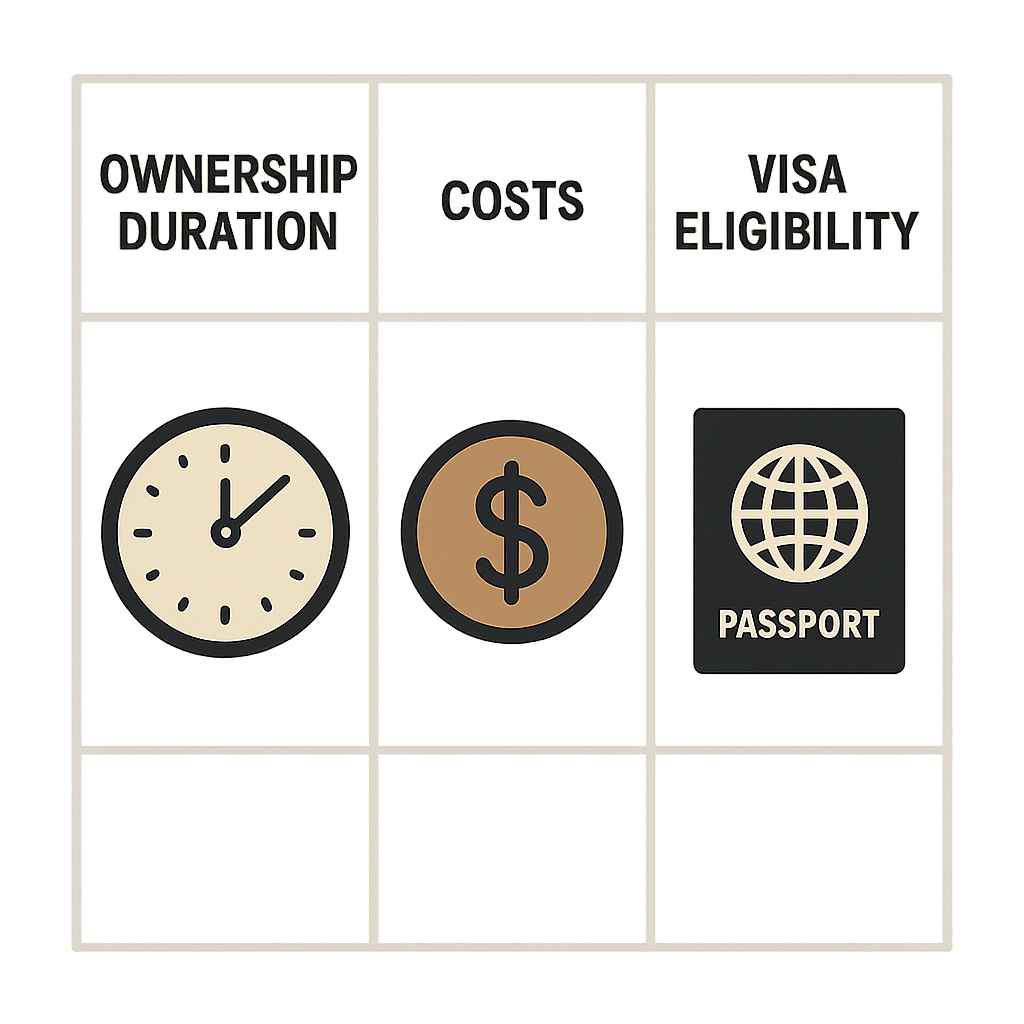
4. Why Freehold Dominates in 2025?
Market growth: 37% YoY transaction surge in 2023, with luxury freehold leading
Rental yields: 7-8% average returns for apartments
New zones: Al Jaddaf and Dubai South expanding freehold inventory
5. How to Choose
Goal-based: Freehold for generational wealth vs leasehold for short-term stays
Budget check: Freehold requires 20-30% higher capital
Location focus: Prioritize DIFC and Business Bay for resale value
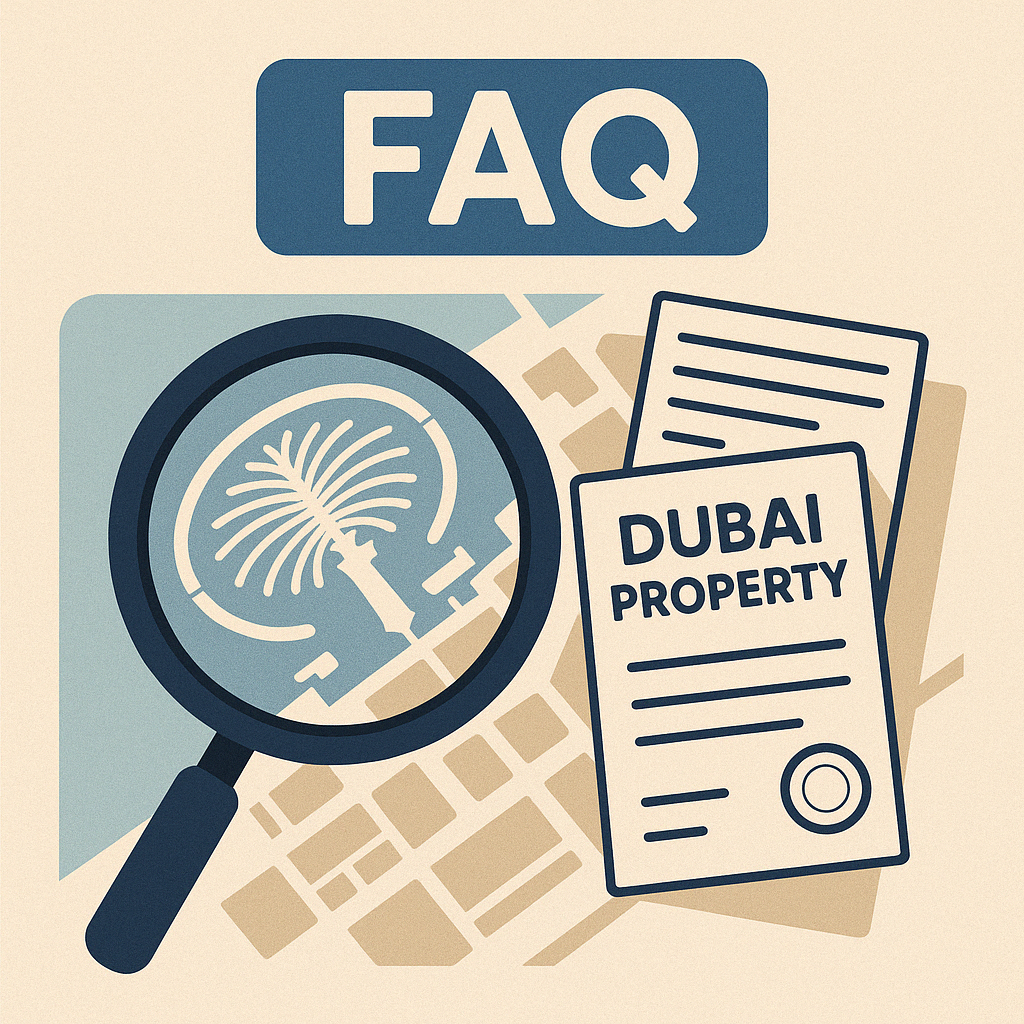
6. Post-99-Year Leasehold FAQs
Q: What happens after 99 years?
A: Ownership reverts to the freeholder unless renewed.
Q: Can foreigners own freehold?
A: Yes, in 40+ designated zones like Dubai Hills.
Conclusion
Freehold vs leasehold properties in Dubai cater to different investor needs. Freehold offers permanent ownership and higher returns, while leasehold provides affordable entry points. With Dubai’s market projected to grow 5-8% annually, aligning with freehold trends ensures long-term gains.
